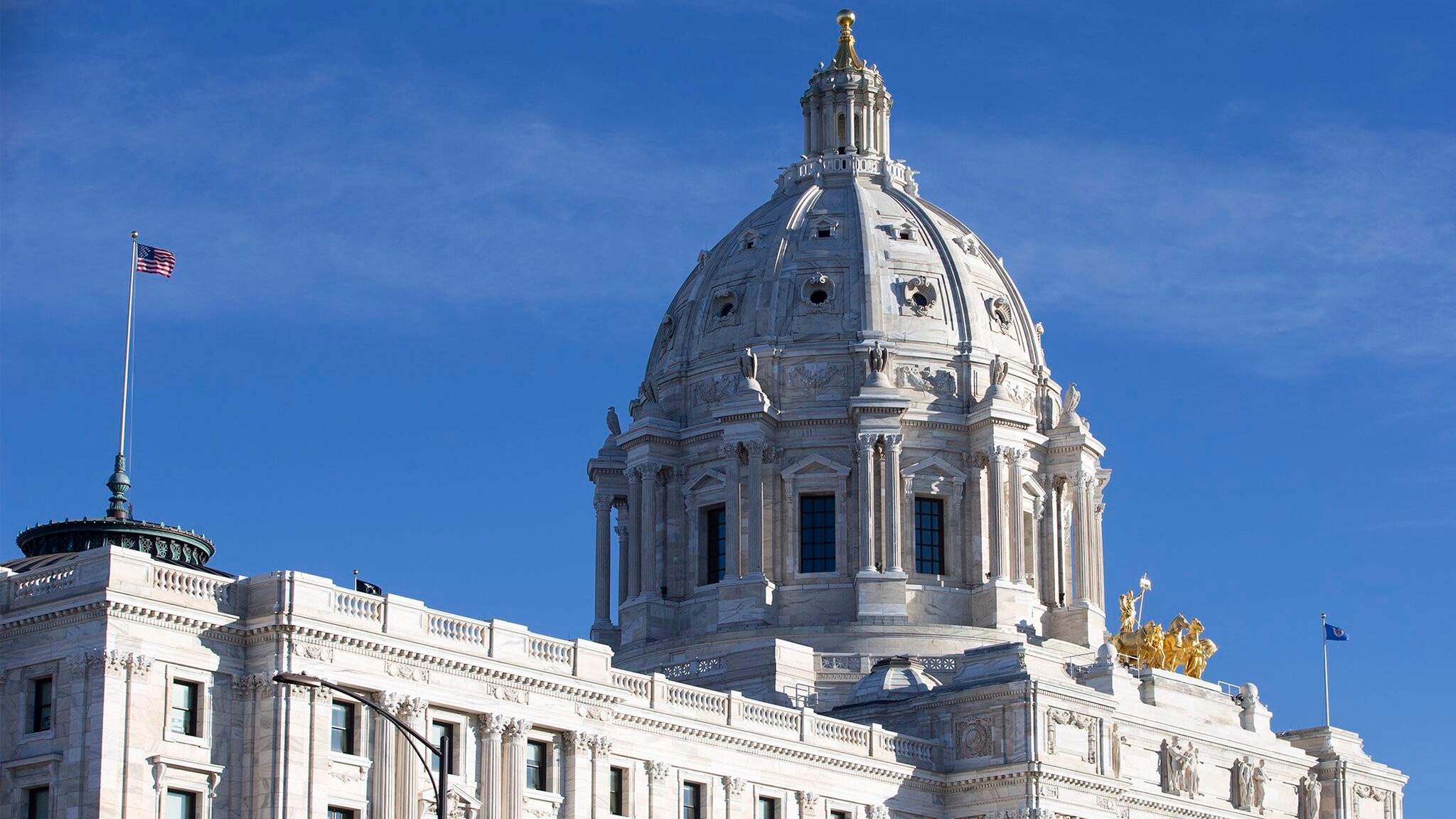New Minnesota laws taking effect July 1

A file photo of the Minnesota State Capitol. (KSTP/ Tom Hauser)
Dozens of new state laws will officially take effect Saturday as the calendar turns to July.
While some bills have specific dates that they become law, many effective dates are simply determined by whether or not they contain appropriation items. In Minnesota, those bills that contain items of appropriation typically take effect on July 1 and those that don’t generally take effect on Aug. 1, unless specified otherwise.
Check out some of the bills becoming law Saturday below. The full list can be found here.
RELATED: New Minnesota laws to impact every business, worker
“Nurse and Patient Safety Act”
The “Keeping Nurses at the Bedside Act” fell apart at the last hour of this year’s legislative session but lawmakers still passed some of the less controversial measures in that bill under the “Nurse and Patient Safety Act.”
Starting Saturday, measures aimed at addressing health care working conditions, requiring incident response action plans to combat violence against health care workers, and expanding the health professional loan forgiveness program go into effect.
Parts of the recreational marijuana bill
Some parts of the bill that will legalize recreational marijuana for adults and expunge past cannabis-related convictions will take effect Saturday, but not the main parts.
Minnesotans still won’t be able to legally possess marijuana until Aug. 1, which is also when the expungement process goes into effect.
Instead, the parts that become law first deal with monetary allocations to help set up the Office of Cannabis Management and taxes that will affect cannabis sales when that is legalized.
Tax and fee increases
A few taxes and fees are set to increase on Saturday, but probably not the ones most Minnesotans are unhappy about.
The state’s motor vehicle sales tax will move from 6.5% to 6.875% and the cost of getting or renewing a driver’s license or ID card will also increase. For example, a Class D REAL ID-compliant driver’s license will jump from $21 to $27.75, according to the transportation bill passed in May. That doesn’t include a $2.25 surcharge or any filing fees. A 10% tax on retail cannabis sales also goes into effect, although that doesn’t matter much since retail sales for recreational marijuana aren’t likely to start until 2025.
However, many of the controversial fees and taxes that made headlines over the past several months, like changes to the gas tax and fees for retail deliveries of more than $100, won’t go into effect until 2024.
Broadband expansion funding
The $100 million increase in funding to the Minnesota Department of Employment and Economic Development (DEED) for broadband expansion officially becomes law Saturday. The law also increases the amount that can be used for a single project in the border-to-border broadband program.
Coincidentally, it takes affect the same week the U.S. Commerce Department announced Minnesota will get nearly $652 million for broadband infrastructure grants.
“Digital Fair Repair Act”
Starting Saturday, manufacturers that sell digital electronic equipment in Minnesota have to offer parts and tools to allow anyone to repair their electronic devices, except for video game consoles.
The bill, known as the “Digital Fair Repair Act,” was signed into law by Gov. Tim Walz in May.
Before Saturday, manufacturers had exclusive rights to make any repairs, which can prove costly for owners.
Efforts to limit excessive drug costs
More consumer protections go into effect Saturday, including some aimed at stopping excessive drug prices.
The money to create Minnesota’s Prescription Drug Affordability Board and a Prescription Drug Affordability Advisory Council is formally allocated Saturday, although their work will take some time before changes are effected.
Also going into law Saturday is the measure that bans excessive price increases of generic or off-patent drugs.
Universal free school meals and boost in public school funding
The popular universal free school meals bill officially takes effect on Saturday.
Passed earlier this year and signed into law in March, the bill guarantees all K-12 students free breakfast and lunch every school day, with the cost picked up by state and federal funds.
The boost in funding for public schools also goes into effect Saturday.
New treatment requirements for peace officer and firefighter PTSD retirements
Changes for when peace officers and firefighters with serious mental health issues can apply for disability benefits or retire take effect Saturday.
The new law, passed this spring, requires up to 32 weeks of treatment before officers or firefighters can apply for retirement benefits.
The updates come after the state saw a wave of PTSD retirement claims after George Floyd’s death.
Lawmakers hope the changes will not only better treat officers and firefighters but keep as many on the job as possible.
Near-total ban on no-knock warrants
Many of the funding increases in the public safety bill passed by lawmakers this year take effect Saturday, but so does the near-total ban on no-knock warrants in Minnesota.
While there are still exceptions for extreme situations, the new law significantly restricts when a judge can issue a no-knock search warrant.
Starting Saturday, they can only be issued if the area being searched can’t wait until it’s unoccupied and the person or people inside pose an immediate threat of injury or death to officers if they’d announce their presence before entering.
The push for stricter limits on the warrants arose after the death of Amir Locke in February 2022.
See the list of hot-button bills taken up by lawmakers in this year’s session with KSTP’s Legislative Tracker.